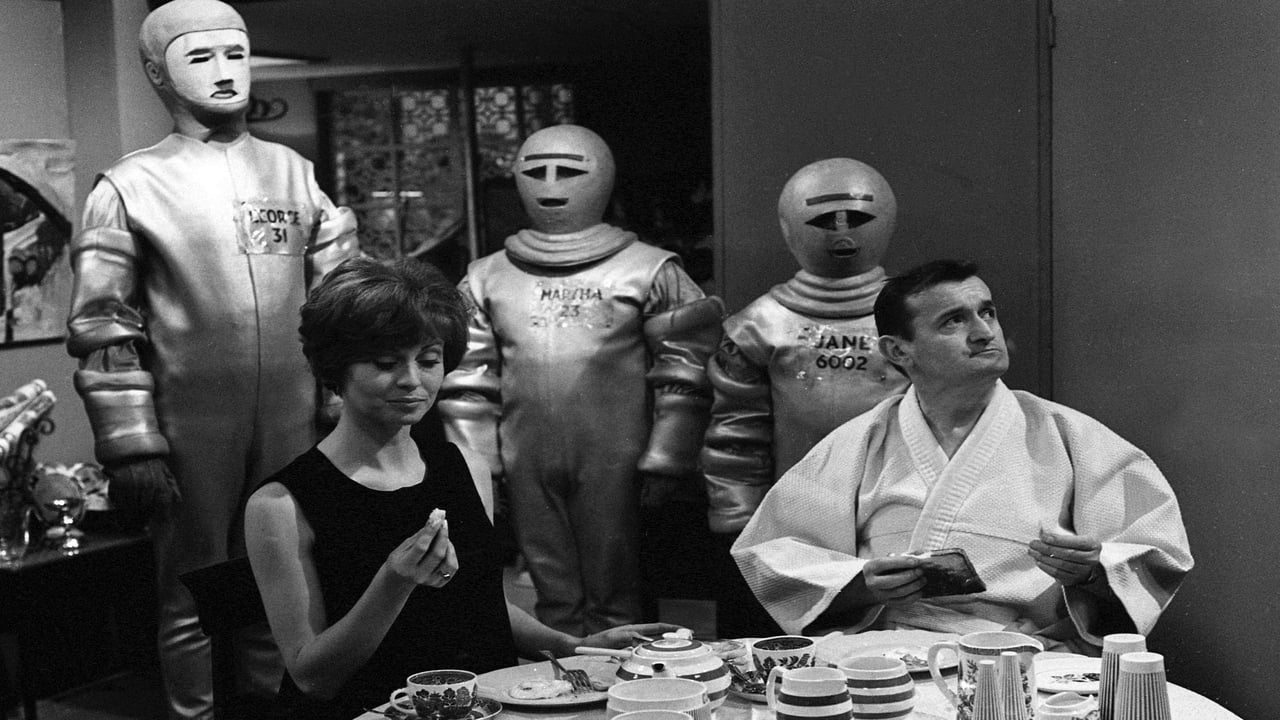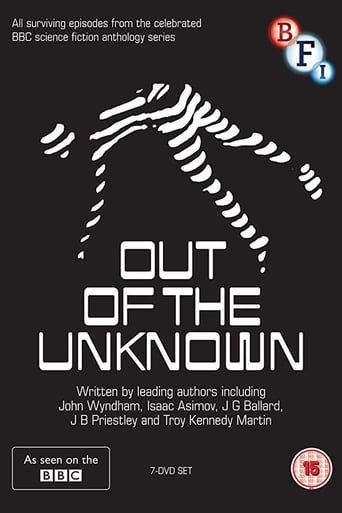Out of the Unknown Season 3

Out of the Unknown is a British television science fiction anthology drama series, produced by the BBC and broadcast on BBC2 in four series between 1965 and 1971. Each episode was a dramatisation of a science fiction short story. Some were written directly for the series, but most were adaptations of already published stories. The first three years were exclusively science fiction, but that genre was abandoned in the final year in favour of horror/fantasy stories. A number of episodes were wiped during the early 1970s, as was standard procedure at the time. A large number of episodes are still missing but some do turn up from time to time; for instance, Level Seven from series two, originally broadcast on 27 October 1966 was returned to the BBC from the archives of a European broadcaster in January 2006.
Watch NowWith 30 Day Free Trial!
Out of the Unknown
1965
Out of the Unknown is a British television science fiction anthology drama series, produced by the BBC and broadcast on BBC2 in four series between 1965 and 1971. Each episode was a dramatisation of a science fiction short story. Some were written directly for the series, but most were adaptations of already published stories. The first three years were exclusively science fiction, but that genre was abandoned in the final year in favour of horror/fantasy stories. A number of episodes were wiped during the early 1970s, as was standard procedure at the time. A large number of episodes are still missing but some do turn up from time to time; for instance, Level Seven from series two, originally broadcast on 27 October 1966 was returned to the BBC from the archives of a European broadcaster in January 2006.
Watch Trailer
With 30 Day Free Trial!
Out of the Unknown Season 3 Full Episode Guide
A bed-bound SF author finds himself within one of his own fantasies after a mental breakdown.
A murderer is examined by psychiatrist John Frame who is surprised to find the criminal knows many details of his private life.
The Ship contains a generation, and only one inheritor knows what must be done when the tremor is felt throughout the metal cylinder.
Mr Foster and his sister live quietly in the suburbs but are not what they seem, possessing scientific knowledge far in advance of humanity.
The population of the United Kingdom at the beginning of the 21st Century is static, thanks to computerized population control, but the wife of the Population Officer becomes pregnant for the second time.
When a down-at-heel, alcoholic physician discovers a medical kit, based on future technology, accidentally left in the wake of a time-travel expedition, he becomes a dispenser of miracle cures. But is his discovery enough to salvage his self-esteem and redeem his life?
Earth police detective Lije Baley and his robot associate, R. Daneel Olivaw, investigate an impossible murder on a planet where physical proximity is taboo but nudity is not.
Following an explosion in a laboratory accident, physicist Colin Trafford is sent to a parallel universe where he enters into the body of his counterpart, a popular writer married to an attractive woman who hates him.
Professor Monty Lafcado, haunted by the memory of his late mother, sets out to construct a mighty computer in his basement, much to the concern of his friend, Dr Pugh.
On his thirty-seventh mission, Commandant Tom Decker and his colleague Ensign Warner-Carr become alarmed at what they find when their spaceship lands on Planet 0243/B.
If, by an accident of science, it became possible for the personality to pass at the moment of death into the mind of someone still alive, then the big new problem would be into whom. To foist the wits of a rogue onto an unwilling recipient would be unjust indeed. Any government who could thus cheat death might indeed win a popular vote, but only so long as all was voluntary - mutually contracted. James Hale is a man of such a society. He has insured against death of his personality by arranging mutual "Contact" contracts with his relatives. He is already host to his late father with whose memories and prejudices he has now learned to live. He himself is a responsible parent of twins whose Contact he will arrange when they are of age.
The positronic brain of robot RB-34(Herbie) has an unforeseen 'extra': he can read human thoughts. So his take on the First Law of Robotics ("A robot may not harm a human being or, through inaction, allow a human being to come to harm") is unorthodox: he tells human beings only what he believes will not hurt their feelings. Can renowned robopsychologist Dr. Susan Calvin 'fix' RB-34? Or are there areas of her own psyche where she would rather not hear the truth?
The very rich can buy eternal life: all that's needed is someone desperate enough to donate, for a high price, a young body into which their personality can be transferred.
Free Trial Channels
Seasons


























